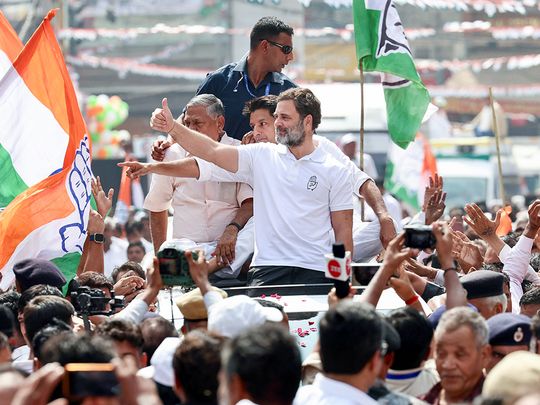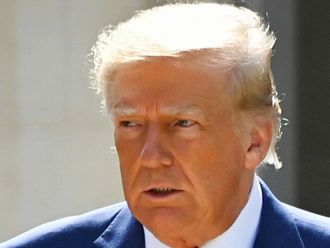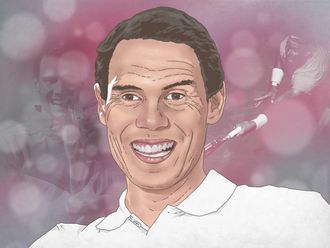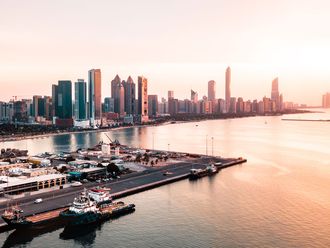
There has been something peculiar in the Congress party campaigns in Haryana, Jammu and Kashmir, Maharashtra, and Jharkhand assembly elections. In the state elections, the Congress campaign has seen very little of Rahul Gandhi, or for that matter his mother and sister.
Rahul Gandhi seems to have decided against doing too many rallies in state assembly elections, just about 2-3 in every election. Expecting a Congress victory in Haryana, party apparatchiks had started propounding a theory that Rahul Gandhi’s Bharat Jodo Yatra had been a turning point in Haryana, since Gandhi had campaigned so little they could not blame his electioneering.
This seems to be a conscious decision on his part to dissociate his image with the party’s fortunes in state elections. Multiple stakeholders within the party often make a mess of the party campaign in state elections, like too many cooks spoiling the broth. Rahul Gandhi’s big takeaway from the Bharat Jodo Yatra seems to be to focus on national campaigning to boost his image rather than put all eggs in state elections.
This is a complete reversal of the strategy we used to see earlier, which was to try and win as many state elections as possible, and thus create a national narrative of Congress resurgence.
In Maharashtra and Jharkhand election campaigns that concluded recently, we saw Rahul Gandhi campaign more for his sister in Wayanad and for the party in Maharashtra and Jharkhand, even though Wayanad was a foregone conclusion.
The road to Delhi
A state-by-state approach can at best be useful in producing a fractured Lok Sabha mandate resulting in a messy coalition. It is national campaigns that produce national leaders. The Bofors campaign propelled VP Singh. The freedom movement produced Gandhi and Nehru. The Lokpal movement produced Arvind Kejriwal who is still seen as a national leader despite having diminished himself with a Delhi focus. The Ram Janambhoomi movement took Advani and Vajpayee from the fringes of Indian politics to the mainstream.
So if Rahul Gandhi wants to reduce his exposure to state elections and focus on a national narrative, he’s right.
Except that he’s going from one extreme to another. State elections do matter, and in the short term are taken to be indicators of a party’s national popularity, rightly or wrongly. Even bypolls, usually fought on hyperlocal dynamics, are often over-interpreted for larger political signals.
If Rahul Gandhi raises his national positioning but his party keeps losing state elections, he’s not poised for success. What he needs is a balanced approach: maybe a 40-60 division of labour, with more for national campaigning. This is not very difficult if one looks at prime minister Narendra Modi, who is usually able to run his national and state election campaigns in parallel. This might mean that Rahul Gandhi may have less time for his foreign holidays (which are now presented as conference trips).
General without an army
Gandhi has dissociated himself not only from Congress state election campaigns but also from the party itself, not least by making Mallikarjun Kharge the party president. Many would say the arrangement has worked well, as it freed Rahul Gandhi for Bharat Jodo Yatra, for example. The Congress party’s surprise improvement in the Lok Sabha rally may also be cited as validation of Rahui Gandhi’s refusal to be party president.
However, one could equally argue that something is broken in the current system if the All India Congress Comittee managed to snatch defeat from the jaws of victory in Haryana recently, and could make no dent in the BJP’s performance in Jammu.
Rahul Gandhi’s entire focus seems to be on boosting his own image and God knows he’s been in need of that for years. Yet a general can only be as good as his army. By completely washing his hands off the party, Gandhi is doing himself a disservice.
For example, in Haryana the party has not been able to form district committees for ten years now. The party is unable to decide who the Leader of the Opposition will be in the state even as an assembly session is about to begin.
President Mallikarjun Kharge and general secretary organisation KC Venugopal may not be able to solve the problem of factionalism in the party, but somebody has to bell the cat.
Without a popular leader the party won’t see a resurgence. Equally, a strong party is needed to propel the leader. The relationship is symbiotic.










